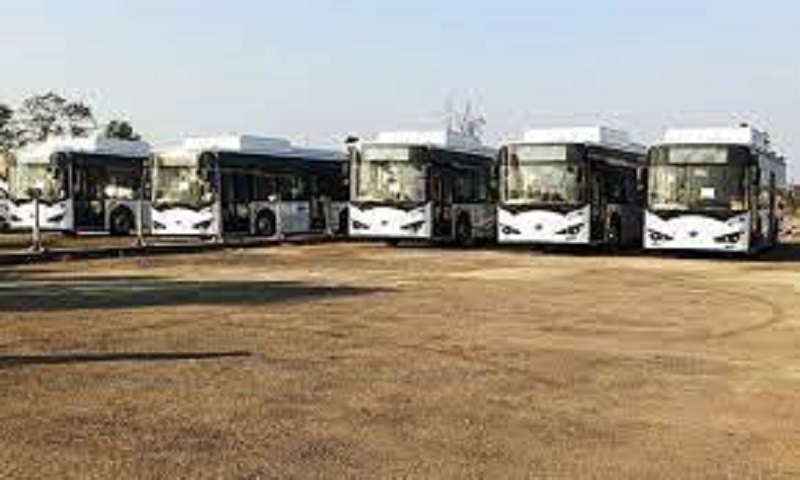

Nineteen electric vehicles that were provided by foreign donors in subsidy have been stranded in Lumbini for the past over two years, thanks to a delay in the legal and operational procedure.
The government bought the vehicles at the cost of Rs 130 million provided by the Asian Development Bank as a subsidy through the Clean Energy Project. The vehicles that were imported to Nepal on 24 November, 2020 through the Ministry of Culture, Tourism and Civil Aviation were later handed to the Lumbini Development Trust (LDT). The government spent over Rs 30 million in tax for importing the vehicles, it is said.
The import of the vehicles aims to connect the Bhairahawa-based Gautam Buddha International Airport with religious and tourist destinations including Lumbini, the birthplace of Gautam Buddha, Tilaurakot, Ramgram, Devdaha and surrounding areas, make movements of tourists easier and get Lumbini and surrounding areas rid of pollution, said the concerned authorities, adding that a delay in the legal and operational process has made the matter worse.
The luxurious electric vehicles include five 19-seat buses and 14 five-seat vans. They have automatic doors and are disabled people friendly. But, much to add to the problem, the dumped vehicles have started breaking down. Some of them have reported malfunction in their tyres and batteries, said local people.
For them, charging stations have been also constructed in Lumbini at the cost of Rs 139 million.
Vice Chairperson of the Siddhartha Hotel Association Megh Nath Acharya said the state’s property has been destroyed by dumping the vehicles. The LDT should take the task of developing the operation modality and running the vehicles, he said. “The vehicles will completely break down in some years when it gets a further delay for their operation,” he said.
He blamed the concerned authorities for being apathetic towards their operation. It took a whopping three years to develop its operational modality and changing the number plates, he said. “It takes no time to convert government vehicles into private or tourist buses. But, there have been various pretexts.”